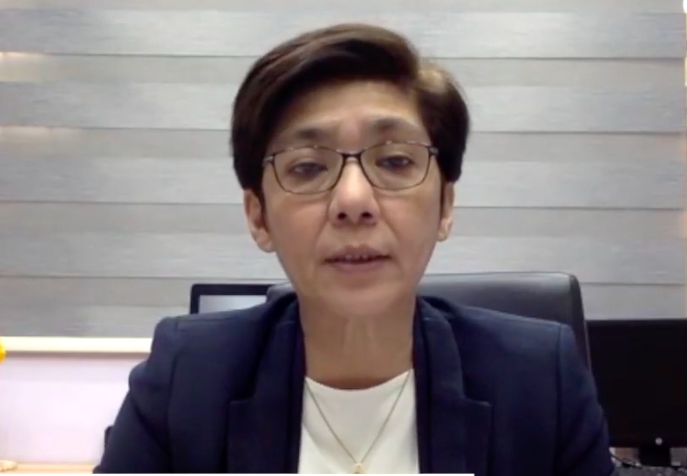Mindanao outpaces Metro Manila in new COVID-19 infections

DOH Undersecretary and spokesperson Maria Rosario Vergeire. FILE PHOTO
MANILA, Philippines — A quarter of new COVID-19 cases in the country has been recorded in Mindanao, which has now outpaced Metro Manila, Health Undersecretary Maria Rosario Vergeire said on Saturday.
“Mindanao has outpaced the National Capital Region (NCR), where Mindanao contributes to about 25 percent of the cases right now. So we see that the burden of cases has shifted to other areas,” she said at an online briefing.
There has also been an increase in cases in the Visayas region as well as in Northern Luzon, she added, noting that the average daily cases in the country has risen over the past two weeks from a seven-day average of 5,200 to 6,691.
Vergeire attributed the rise in cases to the new COVID-19 variants, the mobility of the population, lack of compliance with health protocols, and deficiencies in detection, isolation and treatment.
PH logs 6,995 new cases
Aside from rising cases, there has also been an increase of deaths in regions other than Metro Manila, Vergeire said.
Article continues after this advertisement“We are keeping a close watch on this, especially the capacity of the hospitals in certain areas, and we are really providing utmost assistance to help them so that the areas would not be overwhelmed,” she said.
Article continues after this advertisementThe Department of Health (DOH) on Saturday logged 6,955 new COVID-19 infections, raising the total case count to 1,262,273.
Wear face shields
In its daily case bulletin, the DOH said 59,543 active cases remain. Of these cases, 93.5 percent are mild, 2.4 percent are asymptomatic, 1.3 percent are critical, 1.7 percent are severe and 1.16 are moderate.
The DOH said 8,109 people have recovered, which brought the total number of survivors to 1,180,998. But 195 died of the respiratory disease, raising the total death toll to 21,732.
Saturday was the fourth straight day that more than 100 deaths were recorded.
The rising cases bolstered experts’ warnings that it was not yet time to lift the requirement on face shields, which adds a layer of protection against COVID-19.
“We can consider loosening up these measures when we see a continuous significant decline in our daily COVID-19 cases, or once a significant portion of our population, especially the vulnerable sectors, the elderly and then persons with comorbidities, have been fully vaccinated,” Vergeire said.
At present, minimum public health standards include proper wearing of face mask and face shield, and regular handwashing or disinfecting hands.
The DOH said that in one Indian study of 50 community health workers in India who treated some 118,428 persons in May 2020, none of the health workers were infected after they used face shields.